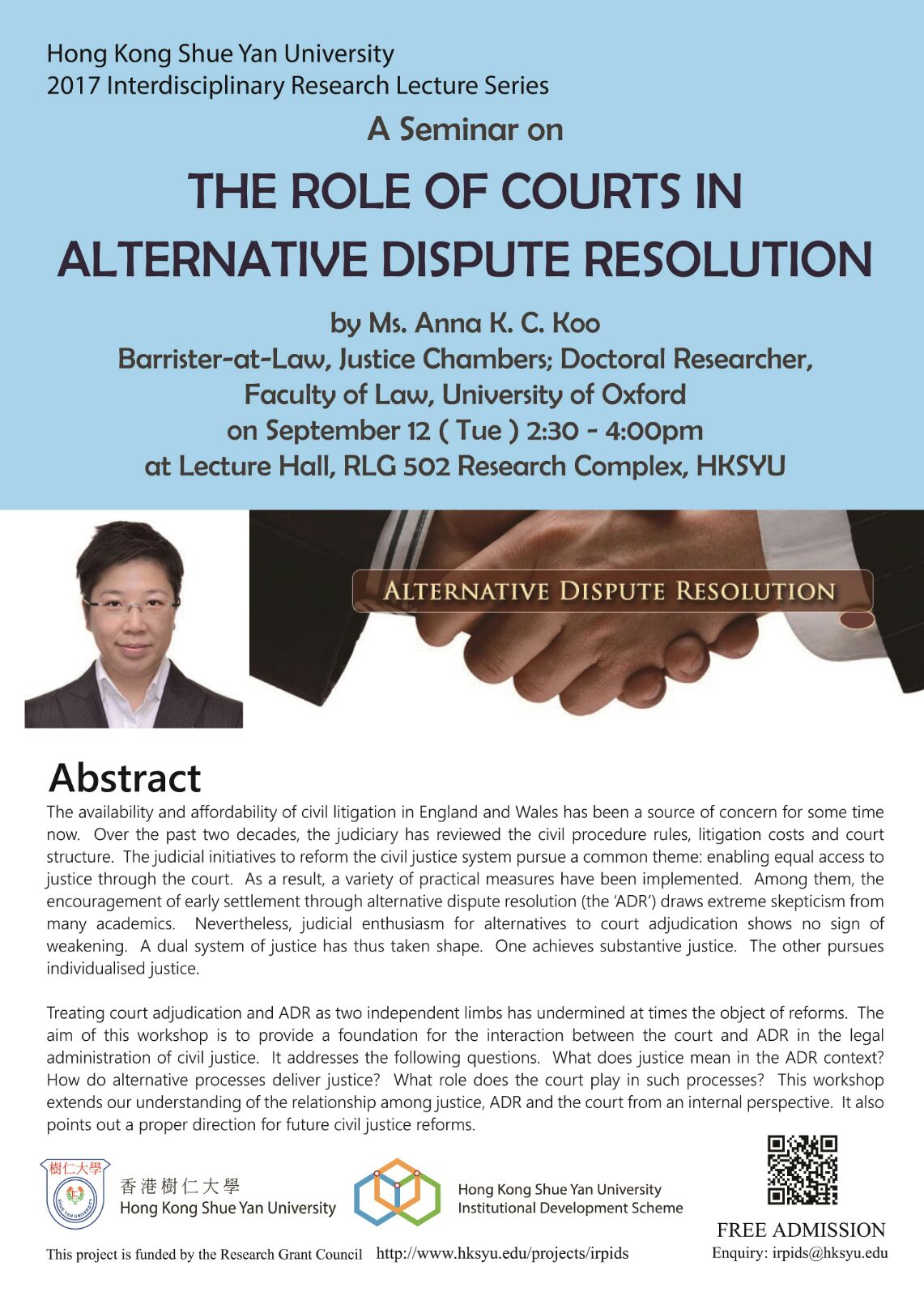The Role of Courts in Alternative Dispute Resolution
Posted by Institutional Development Scheme for HKSYU
Event Type: Research Seminar
Event Theme: Negotiation and Persuasion
Speaker: Ms. Anna K.C. Koo (Barrister-at-Law, Justice Chambers; Doctoral Researcher, Faculty of Law, University of Oxford)
Date: 12 September 2017 (Tuesday)
Time: 2:30pm - 4:00pm
Venue: RLB502, Research Complex, HKSYU
Language: English
Remarks:
1) Free Admission
2) We recommend registration in advance for seat-reservation and news update.
3) CPD Registration approval:
(i) Hong Kong Mediation Accreditation Association Limited (HKMAAL): 1.5 CPD Points
(ii) Hong Kong Mediation Centre (HKMC): 1.5 CPD Points
(iii) Hong Kong International Arbitration Centre (HKIAC): 1.5 CPD Points
Introduction
The availability and affordability of civil litigation in England and Wales has been a source of concern for some time now. Over the past two decades, the judiciary has reviewed the civil procedure rules,litigation costs and court structure. The judicial initiatives to reform the civil justice system pursue a common theme: enabling equal access to justice through the court. As a result, a variety of practical measures have been implemented. Among them, the encouragement of early settlement through alternative dispute resolution (the ‘ADR’) draws extreme skepticism from many academics. Nevertheless, judicial enthusiasm for alternatives to court adjudication shows no sign of weakening. A dual system of justice has thus taken shape. One achieves substantive justice. The other pursues individualised justice.
Treating court adjudication and ADR as two independent limbs has undermined at times the object of reforms. The aim of this workshop is to provide a foundation for the interaction between the court and ADR in the legal administration of civil justice. It addresses the following questions. What does justice mean in the ADR context? How do alternative processes deliver justice? What role does the court play in such processes? This workshop extends our understanding of the relationship among justice, ADR and the court from an internal perspective. It also points out a proper direction for future civil justice reforms.

